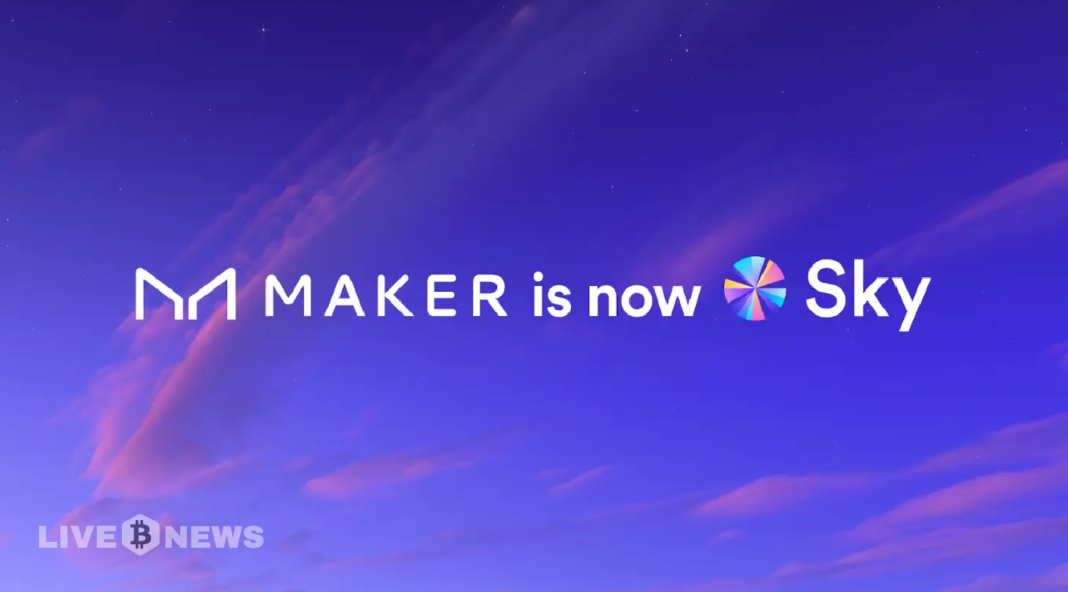- Household DeFi protocol Maker replaced its decentralized DAI stablecoin with centralized USDS as it rebranded to Sky. Users are not happy.
DeFi lending protocol, Maker, came out of its rebranding efforts as Sky. With that, Maker’s stablecoin, DAI—the largest decentralized stablecoin in the crypto ecosystem—was replaced by the new USDS. Maker’s MKR governance token also saw an upgrade as the rebranding ushered in the SKY governance token.
Sky’s team suggested the rebranding will help take this protocol to the next level and drive adoption to users who have not leveraged the benefits of DeFi yet. For instance, Sky looks to attract centralized exchange (CEX) users with its new stablecoin, which will be backed by US treasury bills. In comparison, the previous iteration, DAI, was backed by other cryptocurrencies, keeping its issuance and functioning decentralized. However, the team and Sky’s CEO have iterated that the protocol itself will remain decentralized and observe the same community-based governance functions it used to under the Maker banner. The shift to the US dollar and dollar-backed reserves to power the stablecoin is a decision taken to compete with the likes of USDT and USDC, the top two stablecoins.
Centralization Creeps In as Sky Backs USDS With Treasury Bills
The USDS implementation has got Sky’s user base and the wider crypto community worrying about the implications of a centralized stablecoin. For one, USDS will come with a freeze feature, like that of USDT and USDC, allowing Sky to block the movement of funds whenever it deems necessary. While USDT has actively used this feature to thwart cybercriminals from escaping with stolen proceeds, it still calls into question the power a firm has over a cryptocurrency. That feeling resonated strongly with the community as DAI, a decentralized stablecoin, became USDS, a centralized one.
Furthermore, users found that the Sky website has VPN blockers turned on for specific regions. These moves indicate that Maker, now Sky, is moving toward global adoption by taking a regulation-first approach. Sadly, that includes sacrificing complete decentralization by including centralized processes in some parts of its ecosystem and operations.
Adam Cochran, partner at Cinnemhain Ventures, noted that this was necessary for the path Sky is taking. “The reality is, if you want T-bill yield backing, even by secondary treasury deals, you’re going to have a freeze function, and a VPN jurisdiction blocker.” He added, “A trade off this industry needs to decide on, because you can’t reap the benefits of the US tradfi system without its rule set.”



